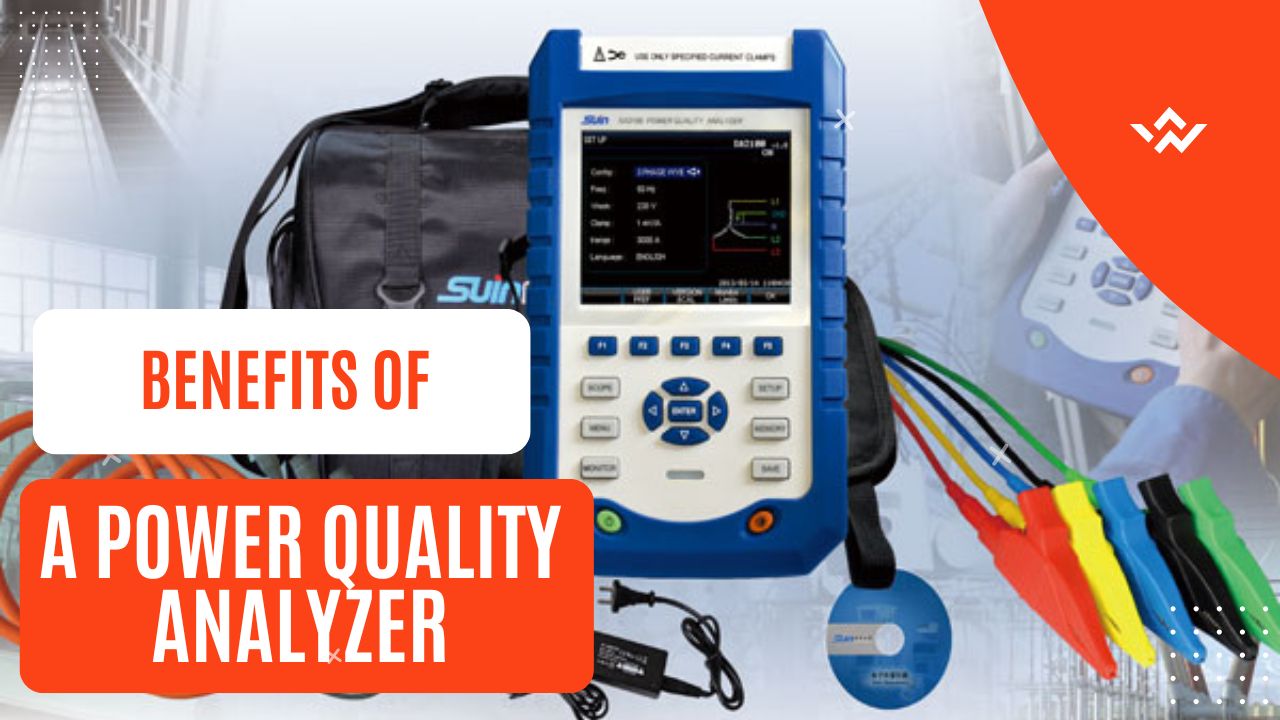
Power Quality Analyzer:
Through the analysis of power quality, potential issues can be easily addressed before they become serious problems. Minimizing equipment downtime to prevent failures, avoiding expensive repairs, and reducing energy consumption by pinpointing areas for efficiency improvements are the benefits of a power quality analyzer as well.
In our fast-paced, technology-driven world, ensuring optimal power quality is essential for both industrial and commercial operations. Poor power quality can result in equipment failures, increased downtime, and substantial financial losses. A power quality analyzer is an invaluable tool that monitors, analyses, and enhances the quality of electrical power systems. This article delves into the advantages of using a power quality analyzer and its role in boosting operational efficiency.
Benefits of a Power Quality Analyzer?
-
Improved Equipment Reliability
Power quality analyzers aid to identify and diagnose issues like voltage sags, swells, transients, and harmonic distortions. Through the detection of these problems early, businesses can prevent equipment failures that could disrupt operations and lead to costly repairs.

-
Reduced Downtime
Unplanned downtime can be extremely costly for any operation. By continuously monitoring power quality, these analyzers can alert maintenance teams to potential issues before they lead to significant disruptions. This proactive approach assists to assure that equipment remains operational and productive.
-
Enhanced Energy Efficiency
Power quality analyzers can pinpoint areas where energy is being wasted due to poor power quality. By addressing these inefficiencies, businesses can minimize their energy consumption, leading to lower utility bills and a smaller carbon footprint.
-
Compliance with Standards
Many industries are subject to strict regulations regarding power quality. Power quality analyzers help ensure compliance with these standards by providing accurate and comprehensive data on the electrical system’s performance. This can be crucial for avoiding fines and maintaining a good reputation.
-
Informed Decision-Making
With the comprehensive data and analytics from power quality analyzers, organizations can make well-informed decisions about their electrical systems. This involves deciding when to invest in upgrades, take corrective actions, or schedule maintenance. Access to accurate information improves strategic planning and resource allocation, resulting in more efficient management of power resources.
-
Root Cause Analysis
When power quality issues occurs as a result pinpointing the root cause can be difficult. Power quality analyzers provide advanced diagnostic capabilities, enabling engineers to trace disturbances to their origin. This thorough analysis not only addresses current problems but also helps prevent future issues, leading to a more robust electrical infrastructure
-
User-Friendly Interfaces
Modern power quality analyzers come equipped with user-friendly interfaces and software that simplify data interpretation. Poor power quality can pose safety risks, such as electrical fires or equipment malfunctions. Power quality analyzers help identify and mitigate these risks, ensuring a safer working environment for employees.
Conclusion:
Investing in a power quality analyzer offers substantial advantages for organizations that depend on electrical systems. Power Quality Analyzer both enhance equipment reliability and reduce downtime. It improve energy efficiency and ensure compliance with industry regulations. By utilizing the insights gained from power quality analysis, businesses can safeguard their assets and cultivate a culture of continuous improvement. Ultimately, a commitment to maintaining optimal power quality positions organizations for sustained success in a competitive marketplace.
continue reading
Related Posts
Power Quality Disturbances are voltage sags, swells, spikes, fluctuation and […]
Maintaining Good Power Quality includes several important characteristics such as […]
Ensuring good power quality is crucial in electrical systems. As […]



